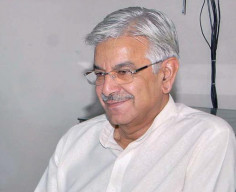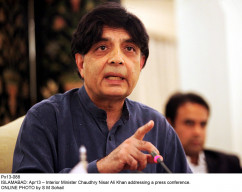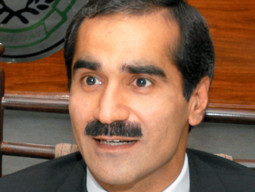
Pakistan, in the last few years, has clearly made significant strides in restoring the civil-military balance. The army, although, remains the strongest institution but does not hold a monopoly as new power centres have emerged. Despite this progress, there are serious aberrations in civil-military relations that are sapping the vitality of the nation. We have witnessed how in the past civil-military divide has thwarted democracy and skewed up the national decision-making process. The Kargil episode and the Memogate affair are some of the classic examples that caused national embarrassment. Moreover, our foreign, defence and security policies continue to suffer as a consequence of this imbalance. Recently, a war of words between the civil and military leadership has rung alarm bells as friction between institutions could undermine our capacity in dealing with the TTP, or for that matter, with any militant organisation, whether based in Punjab, Sindh or Balochistan. Radical groups are known to cleverly exploit differences among institutions to their advantage.
Foreign powers, too, become sceptical when they see the gulf between the civil and military. India, Afghanistan and the US were never sure whether the army was supportive of the policies that the government professed.
There are several other serious ongoing irritants. The saga of missing persons goes on while the prime minister is supposedly engaged in a reconciliation process with the Baloch nationalists. It is rumoured that TTP prisoners were released without taking the military into confidence. This may well not be true, but the apologetic and fraternal overtures extended to the TTP by the interior minister did deeply hurt the feelings of the rank and file of army, reflecting the disconnect. In Punjab, well-known radicals like Maulana Ludhyanvi, Hafiz Saeed and Maulana Azhar becoming a part of mainstream politics and their increasing influence are a source of concern. The level of government tolerance has reached a stage where individuals and groups that were blatantly involved in acts of terrorism and sectarian killings are being given respectability. Is there a realisation in the ruling elite how much the policy of appeasement affects national power and lowers prestige in the eyes of its own people and abroad? The question is whether this is happening with the concurrence of the civil and military leadership or that these policies have no ownership. Once the state surrenders the monopoly of violence and allows it to be outsourced, it loses its ability to protect its citizens. It is ironic that a state that has been using asymmetric forces to multiply its power is now facing a situation where the same forces are diminishing it. More importantly, how will the central policy of Prime Minister Nawaz Sharif to maintain good relations with our neighbours harmonise with its current approach of appeasement with most of these militant groups? Has the civil and military leadership seriously deliberated over these issues and will the new national policy on internal security be implemented to confront and combat these forces?
The fissures in institutional relationships have compromised our ability to deal with neighbouring countries effectively. While dealing with India, granting it the Most-Favoured Nation status has been an on and off affair, giving the impression as if the army brass is not fully supportive of the peace process. Afghan President Hamid Karzai has also been blaming our army and intelligence services for being involved in destabilising his country. Surely, the Pakistani state is not interested in destabilising Afghanistan as it directly hurts its own interest, yet the perception is different.
The trial of General (retd) Pervez Musharraf has turned into a fight of personal egos and testing institutional boundaries between the civilians and the military. Of course, the trial has both a legal and political dimension. The argument advanced by the government and its supporters is that no one is above the law and if former presidents and prime ministers can be tried, why should there be any immunity for the chief of army staff. From a political standpoint too, the prime minister has to satisfy his constituency by ensuring that the court case of Musharraf runs its normal course until it is brought to a closure. A more positive aspect of applying the principle of justice across the board is that it restraints political and military leadership from crossing legal and constitutional boundaries in conducting the affairs of the state. Nawaz Sharif, or for that matter, politicians, military, judiciary and the bureaucrats will henceforth be more cautious as the bar of accountability has been raised across the board. It is a different matter that if Musharraf is convicted, the government could pardon him subsequently.
No one should expect an overnight transformation, but the democratic transition in Pakistan, despite some weaknesses, seems set on the right course. It is a matter of satisfaction that we have reached a stage where law is no more applied selectively and enforced on the basis of political and coercive powers of an institution, but in accordance with the dictates of the law. Narrow interests of an institution should never triumph the larger interests of the state and our civil and military leadership should be mature enough to work for country’s long-term stability.
Moreover, our leaders need to exercise restraint while issuing statements on issues affecting civil-military relations. Even if the government is legally correct in proceeding with the trial of Musharraf, it does not give its ministers a carte blanche to insult and injure the feelings of the military. Not a day passes when our armed forces are not laying down their lives for the defence of the country. It is expected that the civilian leadership will show greater understanding and compassion while giving statements or interviews. Whereas Musharraf has been indicted as an individual, yet to completely detach him from the armed forces will be a folly. The court case can proceed against him smoothly, provided members of the ruling party refrain from making rude remarks. The media too has a responsibility of dampening sensationalism. Lastly, the civilian leadership will have to considerably enhance its competence and capability in foreign, defence and security matters to exercise the power that the Constitution has vested in them.
Published in The Express Tribune, April 16th, 2014.
Like Opinion & Editorial on Facebook, follow @ETOpEd on Twitter to receive all updates on all our daily pieces.
COMMENTS (18)
Comments are moderated and generally will be posted if they are on-topic and not abusive.
For more information, please see our Comments FAQ
































































What the need for any "balance" between civilian government and the military? In all civilized democratic countries, the military is totally subservient to the elected civilian government. It is not the prerogative of the military to demand their inclusion in national domestic and foreign policy making. At best, the military should provide, only when requested by the elected government. any inputs (not demands or directives) that are needed. Once that is done, the military should have no role in policy making or administration, but totally support the decision of the civilian government.
@Naseer Ahmad: I do not normaly compare one with another Sir, Amir kamil did. Mt Obama fired the 4star General Macchrystal, who wanted to win the hearts and minds of the Talibans after loosing battles and got fired since his staff criticised the President advisers.. Napolean was put in prisson because he could not live without wars and RBona Part wisgared ommel was offered the quick end f with honour or death sentence with dishonour for the family, Nawaz Shaharif I guess was the elected Prime Minister and not the vassal of any General. The author General is forecasting that in case of court conviction for Mr Parvez, the Government could pardon him subsequently. The General need to know that mr Parvez is what they say in legal terms a serial offender for ordering the murderous attack on the mosque, death of Baluchi leaders and Bibi who was not provided adequate security.
Rex Minor
@Qabil Khan: Well said
No second opinion. You rightly pointed out that emphasized text"the civilian leadership will have to considerably enhance its competence and capability in foreign, defence and security matters to exercise the power that the Constitution has vested in them".
@Amir Malik: You have a point about the performance of APK, the religious political ruling party of Turky. The cavalier military Generals were given the compulsary retirement while sending others to answer the law in courts who were given jail sentences..
This was a tit for tat performance since the military had sent APK first Prime Minter out of office and to the prison.
Rex Minor
@Amir Malik: First of all you must improve your knowledge of english language, which is not my regular language either. I also happen to know how Pakistan army is raised and trained as well its doctrine behind military takeovers which was established by the first military chief who declared marshal law. The military is trained to kill and this is their function, in all armies of the world, it is therefore essential that they must submit to the authority of the political leadership who are elected representatives in a democracy. The purpose of the democracy is to give the Government that its people deserve. Unfortunately during the military rule there has been a boom in appointing military Generals who after retirement are appearing in all civilian theatres including journalism, not talking about the military history or the wars fought or won or famous military Generals of the world but about how the political leadership should administer the country. In my country, the retired Officer who indulges in such irresponsible commentry will be reprimanded by the head of the retired military officer union.
Rex Minor
@Rex Minor: Military retirees as you refer to them are not "conscripted" in Pakistan. One would need to understand what the difference between conscription and professional Armies is to understand that the term does not apply to Pakistan.
All of you ranting about "supremacy" of elected government need to realized that not a single officer in the Army disagrees with this as a matter of principle. The difference is the reality in Pakistan. In Pakistan, the civilians don't rule Pakistan for the benefit of the country. They rule it for their own benefit. They don't give a damn whether the country goes to default or not, for them their own power, position and interests reign supreme. Yes there can be corruption in the military too, but the corruption by some in the DHA's is not equal by any means to looting the national exchequer through massive corruption in all other sectors of governance as has been witnessed many times over in civil governments.
When an officer in the military is exposed to such high handedness and the military command sees the threat to national sovereignty, which is not limited to just threats from external enemies, as it also includes the weakening of the central government through erosion of the country' economy and other factors such as political disharmony (a major issue throughout the 90s), then it forces the hand of the military.
So stop preaching about the supremacy of the elected government. Everybody including those in uniform know this. Let these democrats first show supremacy in able governance then the argument over military intervention becomes a non-issue. A case in point, Turkey and the performance of AKP!
2nd attempt; It is time that the military retirees attend a course which coaches them to return to the civilian community which they were never part of since their conscription, and set aside the ambitions or grandeur that they were trained or experienced during the military Raj!! The civilian elected Government leadership remains superior to the one in the military and the funtion of the judiciary is to ensure that no one in absolute terms is above the law, all citizens having equal rights and obligations in a democracy, mois General!.
Rex Minor
Nicely written. What comes to mind is .....it takes two to Tango.
To me egoistic attitude of PML (N) elite is main hurdle. No leassons seemed to have been learnt from past. Gen Kiani could control the temptation while Mr Zardari had different approach. It takes time to reform the mind set. If some thing happens civil elite will be at loss. Hope Mian NS will be able to realise and will keep the past in mind.
In civilized world, there is no room for a term called "civil-military balance". Civilian rule is supreme and military is subservient to it just like bureaucracy or any other institution. The very reason that the democratic institutions are not strong in Pakistan is that we are looking for a role for military in governance. Military can only advise on matters concerning national security, it cannot dictate.
I agree with your assessment and assertion that the politicians and the media should refrain from saying any thing about General Musharraf because the case is being tried in the court and it may pollute the even handedness of the court and the nation. As far as General Musharraf is concerned, let the court runs it's course and if found guilty then the President of Pakistan could pardon him and bring in some closure, we do have somewhat precedence in a democratic country like the USA, President Ford did pardon President Nixon and brought some closure to the nation. Pakistan is going through some very serious and difficult times, the government along with the nation should be concentrating to curtail or even eradicate the evil of terrorism in the country, peace in the country will bring in substantial foreign investments and prosperity.
Let's keep things in its place. Military is allegiance is to the country and is subservient to those who are elected by the people to run it. It can't be a country within a country and laws of the land equally applied on it as on any institution or citizen of the country.
Please keep your poor opinion to yourself rather than apologizing than nation later, as you have done in the past.
Very good advise but there should be people who want to take it. For sure adhoicism in policy has to be curtailed and both short as well as long term goals should be set.
A very calm and sensible oped from person respected for his intelligence. However when a person has the temerity to make outrageous statements in power, like Musharraf did, such as 'he would punch and kick Nawaz Sharif and Benazir when given the chance'. One could say he asked for it. Now the shoe is on the other foot and the civilians are in government once again. The Khakis must become learn maturity and realise that it cannot be one way all the time.